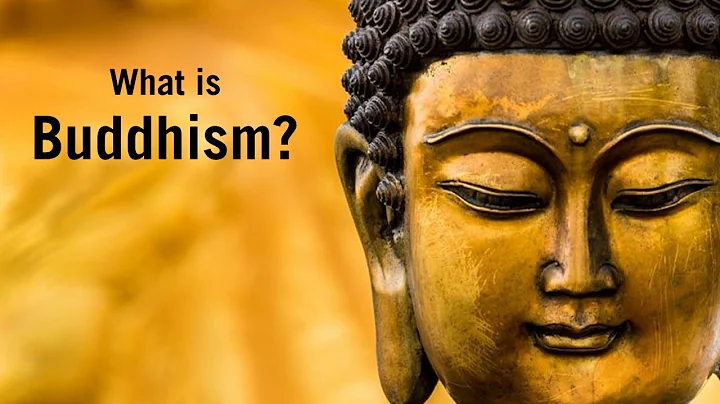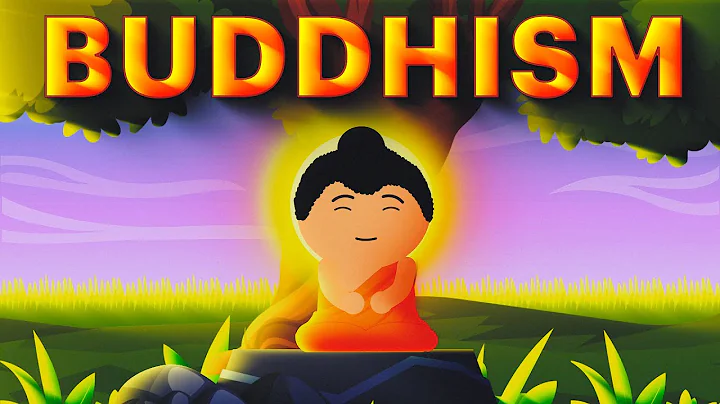read some information today and learned more about the process of localization of Buddhism in China.

In the process of studying the literary history of the Wei, Jin, Southern and Northern Dynasties, I found that I lacked an in-depth understanding of the historical background of that troubled period in history. Today I accidentally saw the first picture and watched a documentary about this period. From the historical years, we can intuitively understand the historical process at that time...

During the Western Jin and Eastern Jin periods, although imperial power politics was not very good, in the Under that historical background, the style of the Wei and Jin Dynasties , metaphysics was prevalent, and the literary works that have been handed down form a rich and colorful chapter in China's splendid cultural history.
After the Wei and Jin Dynasties, we entered an extremely dark period in history.
Five Lakes and Sixteen Countries.
After a hundred years of war, life has been devastated.
People who are in fear and confusion are in urgent need of spiritual comfort.

Buddhism was introduced to China in the Eastern Han Dynasty . Its teachings emphasize spiritual and moral awareness, transcending the troubles of life and death, and finally achieving liberation. During the Wei, Jin, Southern and Northern Dynasties, due to the chaos of war and the general emptiness of society, Buddhism became very popular, becoming not only the sustenance of the upper class, but also the comfort of the ordinary people. Desire to escape from the sea of desire and gain peace in the world.
I have only heard a story about Bodhidharma and Emperor Wu of Liang before, and I don’t know what Emperor Wu of Liang really did for Buddhism in history. Today, with the help of documentaries and historical materials, I have a better understanding of Emperor Wu of Liang.
Emperor Xiao Yan of Liang Dynasty was a descendant of Xiao He of the Han Dynasty. Due to a series of factors, he became emperor and established the Liang Dynasty in the Southern Dynasty.
He established Buddhism as the state religion, hoping to use the compassion of Buddhism to relieve the hostility that pervaded the entire Southern Dynasty, which had experienced long-term war and suffering. Believing in Buddhism has become a tool of political governance and will no longer be a personal choice.
There are also some rules and regulations, such as:
Monks do not eat meat. Do not use fish and insects as medicine. Birds and beasts are not allowed to be included in the brocade to prevent it from breaking into pieces and causing inner sadness.
This view of compassion is not only a major development of Indian Buddhist teachings, but also combined with the Confucian concept of benevolence, which is very Chinese characteristics . The practical integration of
and Chinese traditional culture has enabled Buddhism, a foreign culture, to gradually infiltrate people's hearts in China.

He formulated the "Five Rites" to regulate people's social behavior, and the precepts to regulate people's individual minds.
Buddhism in China has an operational system and model.
Buddhism, which originated in India, has nothing to do with politics. It is a belief that transcends the mortal world and obtains spiritual liberation.
However, after Buddhism was localized in China, benevolence, righteousness, morality, loyalty to the emperor and patriotism became the characteristics of Chinese Buddhism .
And Emperor Wu of Liang also proposed the theory that "Confucianism, Buddhism and Taoism" have the same origin. Let the spirit of Confucianism, Buddhism and Taoism be closely integrated to create a beautiful chapter in Chinese history.
Posterity once described the Liang Dynasty under the rule of Emperor Liang Wu like this:
In the rainy and rainy Northern and Southern Dynasties period, it was like a clear sky...
Understand the suffering life of people under the background of that troubled time, Only then can we have a deeper understanding of Emperor Wu of Liang’s Buddhist governance strategies and the changes he brought to that era.
Unfortunately, Emperor Wu of Liang in history did not end well.
You gain it, you lose it.
Gains and losses are impermanent, and there are times of ups and downs.
He has already seen through the world of mortals.

There is a story about the encounter between Emperor Wu of Liang and Bodhidharma.
Bodhidharma Crossed the river with a reed, leaving behind a thousand-year mysterious legend.
Bodhidharma has been facing the wall for nine years in Songshan . Zen Buddhism founded by
. It developed into a local religion in China.
The shadow of Zen can be seen everywhere in later Tang poetry, Song lyrics, Yuan music, and landscape paintings... It affects not only China, but also the entire East Asia region.
Buddhism entered China and brought a new way of thinking.After continuous transformation, Buddhism has become a part of Chinese culture. Only when
is combined with inclusive Chinese culture can the introduction of foreign culture take root and glow with new brilliance.
Buddhism came from the west, which completely explains this process.
Looking at it this way, you can see that Christianity was once introduced to China, but it did not cause any ripples in Chinese culture.
First of all, we don’t need Christianity politically. On the other hand, Christianity was introduced to China too late. People already had a more complete and deep-rooted localized Buddhism, which has long become a cultural imprint condensed in the blood of a nation.
During the reign of Emperor Wu of Liang Dynasty, the Buddhist rules and precepts were established and have been followed to this day. The Zen Buddhism founded by Bodhidharma has had a huge influence on later generations of China. In fact, our lives and minds are infiltrated with the cultural vitality of Zen. Even if we no longer believe in religion, the charm of Zen has long been melted into our history and culture. , has become a part of daily life, and will continue to do so...
Zen is around us and lives in our hearts.
Tang poems, Song lyrics, Yuan music, landscape paintings Light music ... Why do we feel that the artistic conception of these works is so beautiful and so touching? Because many of them incorporate Zen elements


















![[ENG] Story of the Buddha - DayDayNews](https://i.ytimg.com/vi/wbDNlTXatp4/hqdefault.jpg?sqp=-oaymwEcCOADEI4CSFXyq4qpAw4IARUAAIhCGAFwAcABBg==&rs=AOn4CLBdhJEnK201LG4AbQEOMGLXqzGQrw)



